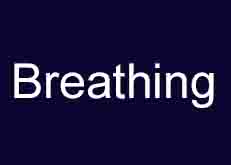
Sleep is the most important thing you can do to have good health. It’s when your brain takes out the garbage!
Nutrition is our fascination with food as entertainment. It’s how we poison ourselves.

The Glymphatic System
← Give your brain a chance to relieve itself while you sleep!
The glymphatic system was first described in the Journal Science in 2012. It’s the way the brain disposes of metabolic wastes and maintains fluid balance.
The rest of body has the lymphatic system, which returns metabolic wastes to the blood stream to be eliminated. The glymphatic system also returns waste to the blood stream by less direct routes through both veins in the brain and indirect links to the lymph system.
The important thing to know is that the glymphatic system does most of its important work while you sleep. Imagine what is piling up in there it you don’t give it enough time to purge!
Sleep Deprivation in America
Drivers that regularly sleep less than six hours per night have double the risk of having an automobile accident than drivers who sleep eight hours. When time changes for daylight savings time, many otherwise healthy people temporarily experience emotional or health problems but seldom associate it with their suddenly upset sleep schedule. Bad stuff happens when people don’t get enough sleep and Americans (we are talking North Americans here – desculpe Brasileiros) are having an epidemic of sleep deprivation.
Sleep disorders may have a medical cause but more often that not there are non-medical reasons that people don’t get enough sleep. Much of it is life style, substance abuse, shift work, irresponsible parents who don’t enforce children’s’ sleep, simple lack of self-discipline, or seductive technology like cell phones, television, and computer screens.
Our national sleep problem has caught the attention of healthcare leaders. There are many good on-line resources to learn about sleep. It’s the most important place to start. The rest will fall into place.
WebMD is a great resource. It’s the leading health publisher in the United States.
Check out their Healthy Sleep Health Center
Sleep Disorders
We don’t intend to give advice to people who may have serious sleep disorders that may require professional attention other than urge you to seek professional advice. On the other hand, be sure you understand why they recommend a certain course of treatment. Some of these disorders are not well understood and both you and your doctor may have to experiment.
Here are two sleep disorders that have specific criteria to render a diagnosis:
- Narcolepsy – Falling asleep during the day despite apparently sleeping enough time at night. It is relatively rare. Type 1 narcolepsy is accompanied by a perplexing condition known as cataplexy. Type 2 is narcolepsy without cataplexy .
A low level of a hormone, hypocretin, has been associated with cataplexy. Some people report that adhering to a strict ketogenic diet helps their symptoms. - Sleep Apnea – This is when a person does not breath properly while sleeping. There are three classifications:
1 . Obstructive Sleep Apnea (OSA) -a physical blockage of the airway
2. Central Sleep Apnea (CSA) – shallow, slow, or interrupted breathing because the brain sends the wrong signals.
3. Mixed Sleep Apnea – A combination of both OSA and CSA
If you are diagnosed with sleep apnea and placed on a course of treatment, you may be able to correct the myriad of contributing factors and eventually correct the sleep apnea. Your sleep doctor probably won’t be able to hold your hand throughout the life altering transformation. You will need the courage to forge ahead on your own and have the self-discipline to make life altering decisions.
Lack of Self-control
The main reason people do not get enough sleep is lack of self-control. It is far more serious than simply deciding when to go to bed, immediately falling asleep, and sleeping 8 hours uninterrupted.
What about the person who is grossly overweight, drinks a lot of beer before going to bed, experiences atrial fibrilation during the night, gets up to urinate several times, tries to go back to sleep but cannot, checks the cell phone for world shaking personal messages, and finally chugs down twice the recommended dose of a diphenhydramine (brand name Benadryl) containing sleep aid?
That person has many serious problems and not sleeping well is both a symptom and cause of most of them. Bad sleep contributes to insulin resistance and the accompanying metabolic syndrome. You can name some of the rest of the problems that accompany bad sleep: heart disease, cancer, depression, chronic pain, diabetes, asthma, gastroesophageal reflux disease (GERD), overactive thyroid, Parkinson’s disease, Alzheimer’s disease… The list goes on. Bad sleep contributes to these disorders and these disorders make sleep increasingly difficult.
It is only fair to not blame everything on lack of self-control. People catch viruses, have accidents, inherit tricky genes, and associate with the wrong people. Many make bad choices because of bad information. But for those who do know and indulge in an unhealthy life style, which unfortunately is most Americans, the blame for poor decisions is their own lack of self-discipline.





